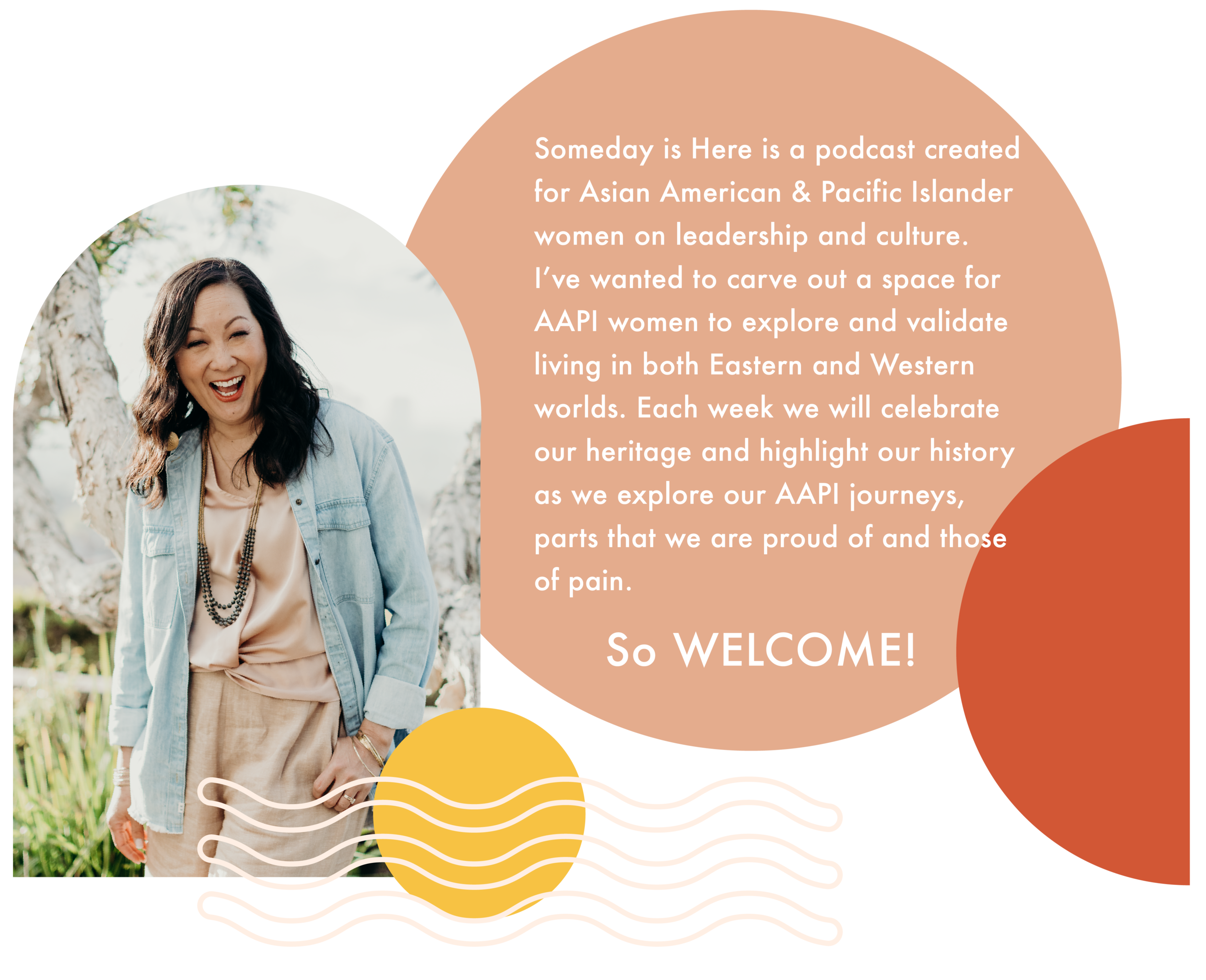Episode 32 - Emma Tautolo
Episode 32 w/ Emma Tautolo
This week on the @somedayisherepodcast we have our first Pacific Islander woman leader, the incredible @etautolo! Emma is a leader I deeply respect. We dive into the challenges and tension of Pacific Islanders being lumped into the Asian American category, as well as the overlap we share. The episode is loaded with helpful insights and history on Polynesian and Samoan culture and practical leadership lessons. I thoroughly enjoyed this refreshing conversation and I know you will, too. Tag your friends and invite them to listen along.
LEARN MORE ABOUT EMMA
Instagram: @etautolo
Lenses Institute: http://lensesinstitute.com
Emma Tautolo is a Southern California native who loves the ocean, pit bulls, and 90’s-00’s R&B. She got involved with a sports ministry called Athletes in Action (AIA) as a student-athlete at UCLA and has been serving on staff with AIA for 10 years now - the last 7 of those years in Arizona at Arizona State University and most recently as regional director in the Pacific Southwest giving leadership to Arizona, California and Hawaii. She serves as a ministry resident at Redemption Church Tempe where she just loves participating in the life of the local Church and is also an executive leader with the Lenses Institute (LensesInstitute.com), a development platform that equips the people of God to fight for oneness by influencing the way Christian leaders see, understand and act in our ethnically and culturally diverse world. Emma is currently pursuing a masters degree in Missional Theology through Covenant Seminary’s Missional Training Center.
FAVORITE COMFORT FOOD
Spam Musubi
Fa’i (Samoan green banana side dish)
LEADERSHIP LESSON
“What I learned about leadership is that it can’t be done alone. It has to be done communally. I think the way I just see leadership is it is just communal. I love shared leadership.”
“Proximity helps you make wise decisions. Proximity helps you feel what the people you are leading feel. We can’t lead well without (it).”
DID YOU KNOW?
Disaggregate the Data!!!
Did you know that in the 2000 U.S. Census, Asian Americans and Pacific Islanders were recognized by the government as two different racial identities? Previously identified in the Census as Asian Pacific Americans, these two communities are now recognized as having very different and complex histories that at times have intertwined. And yet, they are still often conflated to this day. While there is value in bunching these communities for solidarity purposes––as seen in institutions such Ethnic Studies Programs at universities and non-profits, or to address issues of violence and poverty––there are also serious complications that must be taken into consideration.
First, data must be disaggregated. Not only is it dangerous, harmful, and inaccurate to create a narrative that supports a homogenous Asian American community as the model minority, it does not account for the vast amount of Asian American communities who are living all over the socioeconomic spectrum, and especially those who are living under the poverty line. Even more so, to also include Pacific Islander data as homogenous with Asian American, it erases the unique histories and the specific issues that are prevalent within Pacific Islander communities, while creating unrealistic expectations for both Pacific Islanders and Asian Americans. This issue tangibly manifests when these already underserved communities are not provided any or cannot afford the resources to get them out of their situations.
Secondly, what complicates this matter even more so is that in many places, such as Hawai`i, Asian Americans are actually seen as settler colonialists, meaning they have not only displaced indigenous people from their land, but contributed to the loss of indigenous language, history, and practices. It is important that Asian Americans also recognize the ways in which they have oppressed others.
The question is how do we advocate for and become allies to Pacific Islander communities as Asian Americans? How do we not only make space for them at the table, but how do we show with our actions that their histories matter to us? This is especially important in an increasingly globalized world where we are, more often than not, are interconnected with one another.
Resources
The Wedge: Samoans for Black Lives
"Who Gets To Be 'Hapa'? : Code Switch" by Akemi Johnson
Book Recommendations:

















